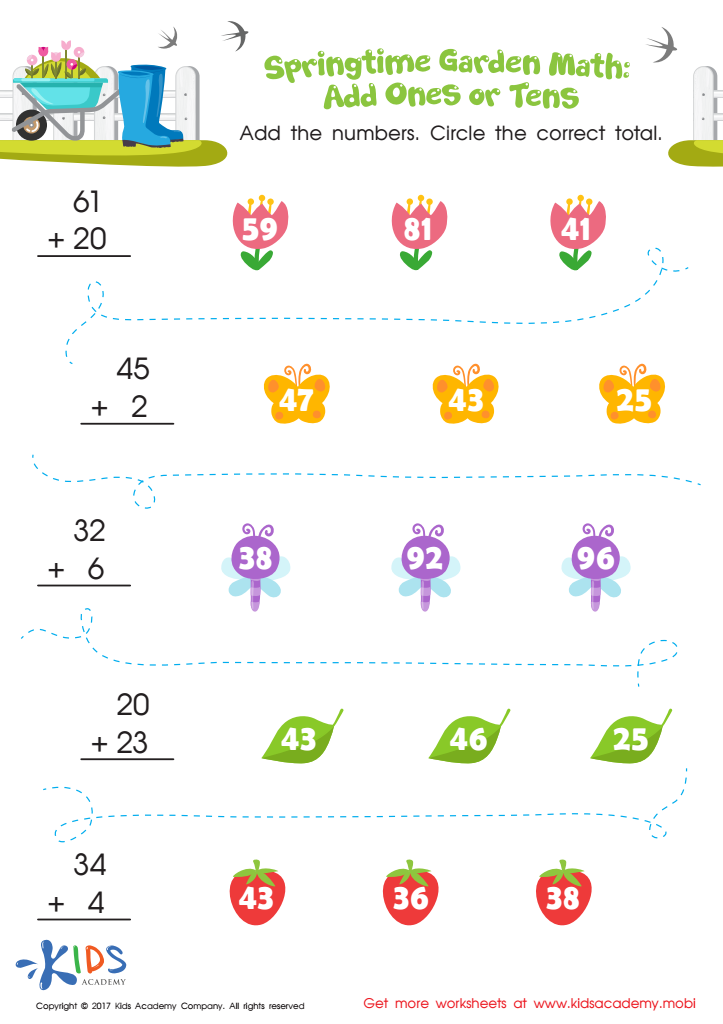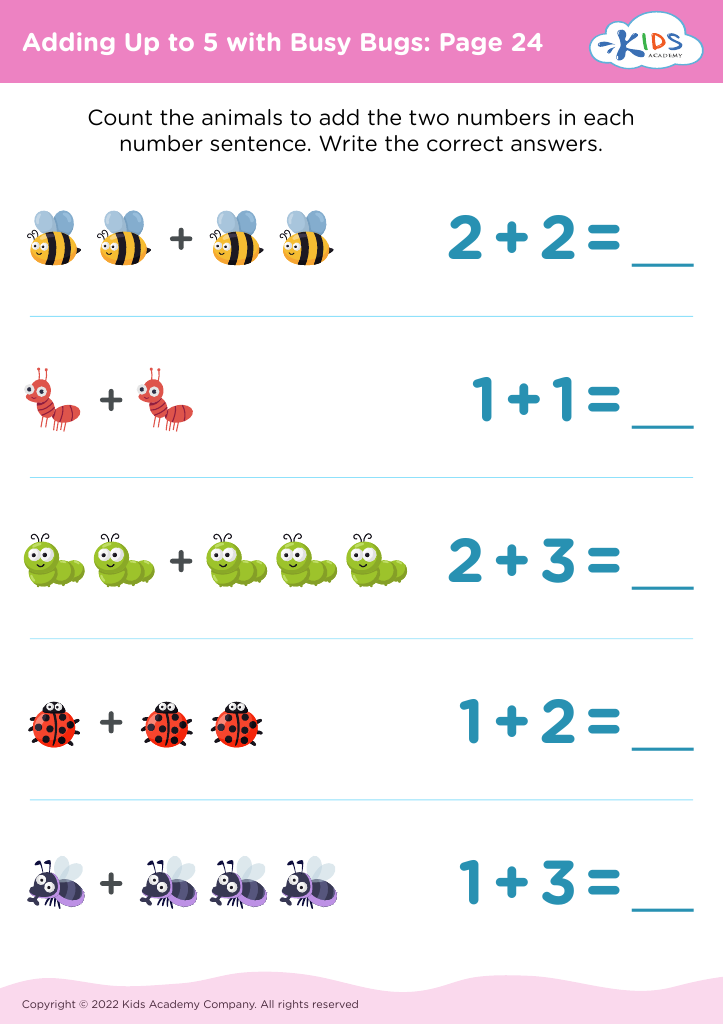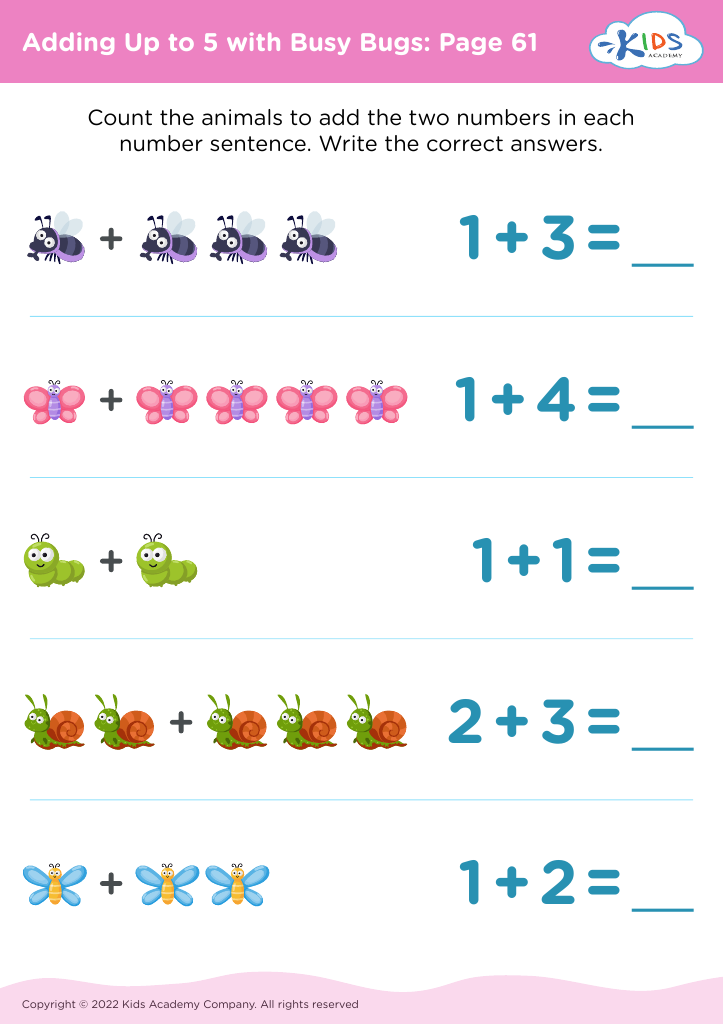Visualization skills Addition Worksheets for Ages 3-7
3 filtered results
-
From - To
Enhance your child's mathematical understanding with our Visualization Skills Addition Worksheets tailored for ages 3-7. Designed to foster critical thinking and number sense, these engaging worksheets help young learners visualize addition concepts through creative exercises and colorful illustrations. By incorporating fun activities, children develop their ability to identify patterns, manipulate numbers, and gain confidence in their arithmetic skills. Perfect for both home and classroom settings, these interactive resources make learning math enjoyable and effective. Help your child embark on a delightful educational journey while mastering essential addition skills! Download our worksheets today to inspire a love for math in your little one!


Springtime Garden Math Worksheet
Visualization skills are crucial for children aged 3-7, particularly in learning fundamental concepts like addition. This stage is critical for cognitive development, and strong visualization skills support mathematical understanding by allowing children to mentally manipulate numbers and pictorially represent problems.
When children visualize addition, they transform abstract numbers into concrete images. For example, they might picture groups of objects being combined, which helps them grasp the concept of combining quantities. This not only enhances their mathematical flexibility but also strengthens problem-solving abilities, as they learn to visualize different approaches to a problem.
Teachers and parents should prioritize these skills because they lay a foundation for more advanced mathematical concepts, fostering confidence and enthusiasm for learning as children progress. Positive experiences with visualization can reduce math anxiety and promote a growth mindset, encouraging kids to view challenges as opportunities rather than obstacles.
Moreover, engaging children through visualization aids retention and makes learning more enjoyable. Using tools like physical objects, drawings, or digital resources can spark interest. By nurturing these skills early, educators and caregivers can prepare children for future academic success and instill an appreciation for mathematics that lasts a lifetime.

 Assign to My Students
Assign to My Students

















